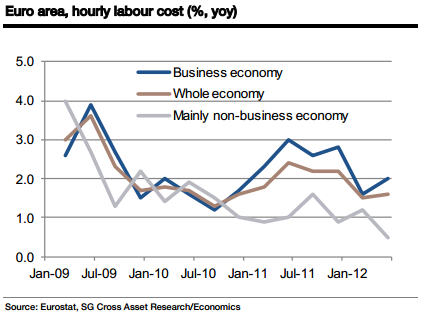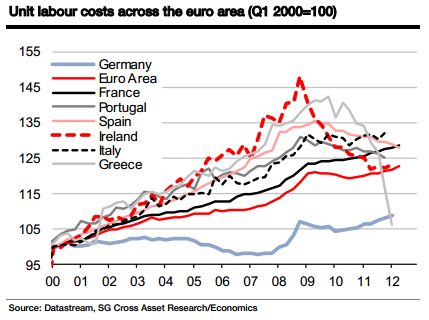Eurozone sticky wage update
From the always essential FT Alphaville:
Société Générale points out that unit labour costs — basically, wages — have been falling quite rapidly in the peripherals, and that this is probably due to austerity measures. New data from Eurostat breaks out what the agency calls ‘non-business’ wages: the education, health services, and public administration sectors. In otherwords, ‘non-business’ is a rough proxy for the public sector:
The logical follow-on from the above being that “non-business” sectors are a big contributor to the rapidly falling unit labour costs in the periphery, especially given their large state sectors:
SocGen’s Michel Martinez writes that there are outright wage declines in Greece while in the other peripherals, labour productivity (as measured by ULC) is outpacing wage gains.
TC again: No one should doubt that depreciation and expansionary monetary policy are a much easier path to lower real wages. Yet the claim that wages are outright sticky for long periods of time, when economic pressures dictate wage declines, isn’t holding up that well.
And I would add this: They are not as wealthy as they thought they were.

